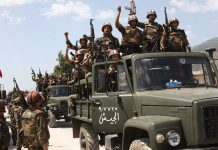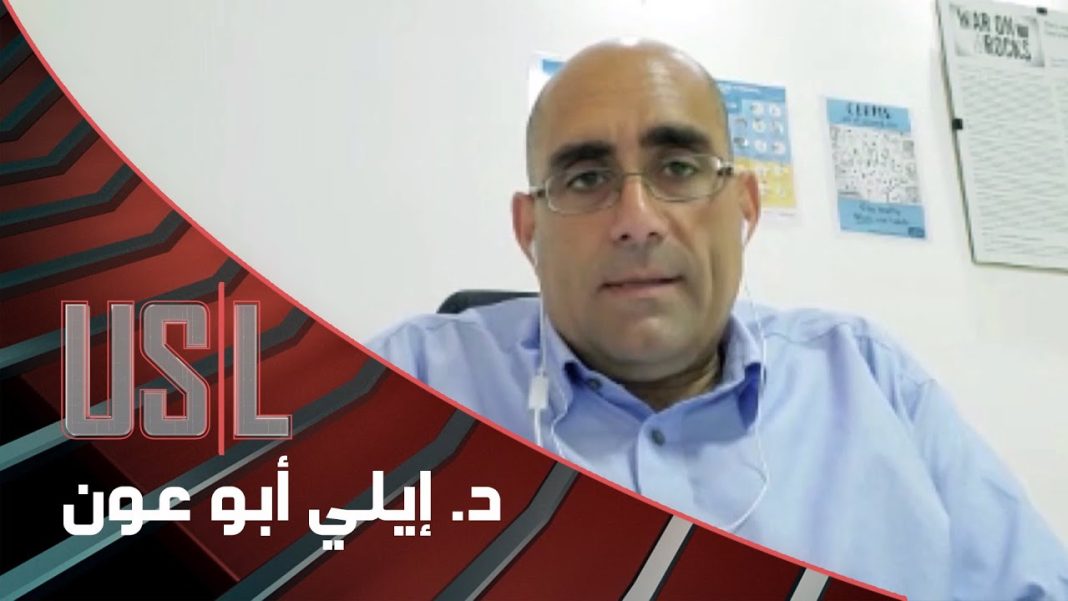ثلاثة أسئلة حول الهجوم الأخير على مبنى القنصلية الإيرانية في دمشق وتبعاته
د. إيلي أبو عون/استاذ محاضر في جامعة القديس يوسف في بيروت/03 نيسان/2024
نقلاً عن موقع strategy International
بماذا يختلف هذا الهجوم عن سابقيه؟
استهداف اسرائيل لمرفق دبلوماسي إيراني في دمشق هو بحد ذاته أمر ذو مغزى توجه إسرائيل من خلاله رسالة واضحة انها لا ولن تلتزم بأية حدود -حقيقية أو متخيلة – عندما يسنح لها الظرف بتصفية أهداف عالية القيمة كالمجموعة التي قضت في الضربة الأخيرة في دمشق. من ناحية أخرى، تشكل هوية وأهمية المجموعة المستهدفة مفارقة، اذ تفيد وسائل الإعلام والمراقبين الإيرانيين أن محمد رضا زهدي هو أعلى قائد في قوات الحرس الثوري الإسلامي في لبنان وسوريا. وكان أيضا ثاني أكبر قائد من الحرس الثوري يغتال منذ مقتل قاسم سليماني في كانون الثاني/يناير 2020 عبر هجوم أمريكي بطائرة بدون طيار في بغداد. يشكل هذا الهحوم خسارة معنوية وسياسية وتكتيكية جسيمة بالنسبة لايران وهو يؤكد تفوق المخابرات الإسرائيلية اوقدرتها على شن ضربات استراتيجية ضد المواقع والأهداف الحيوية في جميع أنحاء المنطقة. لكن قدرات إيران وعملياتها في سوريا ولبنان لن تتأثر كثيراً بهذا الاغتيال اذ أدرك الإيرانيون منذ وقت ضرورة تحضير بديل لكل شخص محوري في منظومتهم. كما وأن لديهم إجراءات جاهزة لملء الشواغر في مناصب القادة وللحيلولة دون توقف عملياتهم.
ما هو شكل الرد المتوقع من إيران في أعقاب الهجوم الأخير على القنصلية الإيرانية في دمشق؟
من الأرجح أن تعتمد إيران استراتيجية متعددة المستويات بدلاً من الانخراط فوراً في عملية واسعة النطاق. ومن المحتمل أن يأخذ المستوى الأول شكل هجوم رمزي يذكر بالهجوم الصاروخي على قاعدة عين الأسد العسكرية الأمريكية في العراق بعد اغتيال قاسم سليماني في يناير 2020. وسيهدف ذلك إلى استعادة مظهر القوة دون التسبب في نشوب حرب تقليدية تعتبرها إيران غير مجدية. وهذا ضروري أيضاً لإرضاء بعض السياسيين الإيرانيين المؤثرين الذين ينتقدون إيران على ما يرونه سياسات متساهلة تجاه الولايات المتحدة وإسرائيل، وخاصة بعد أكتوبر 2023.
وفي الوقت نفسه، ستعد إيران بعناية ردا أكثر ايلاما وفعالية لرسم حدودلما يمكن ان تقوم به اسرائيل أو دول أخرى. تصر ايران دائما ان تحدد بنفسها توقيت وشكل وحجم الرد اذ انها تتجنب بأي شكل ان تنجر الى مواجهة لا تتحكم بمفاصلها الأساسية. بطبيعة الحال. سوف تدفع ايران وكلائها الى المشاركة بالرد لايصال رسالة واضحة إلى جيرانها في المنطقة.
ما هي مكامن القلق لدى الولايات المتحدة وبلدان مجلس التعاون فيما يتعلق بالهجوم الأخير في دمشق، وكيف يمكن لإيران أن تتعامل مع هذا القلق؟
من المنطقي ان تشعر الولايات المتحدة ودول مجلس التعاون بالقلق من تصعيد محتمل في المنطقة ككل نتيجة الهجوم الأخير في دمشق مما سوف يتطلب تدخلا مباشرا في وقت تعتقد فيه هذه الدول أن الذهاب إلى مواجهة مباشرة مع إيران قد يؤدي إلى نتائج عكسية وغير ضرورية في الوقت الراهن. ويؤكد هذا التوجه اصرار كل تلك الدول على ادانة الهجوم انكارهم رسميا أي معرفة به أو أي دعم له. ومع ذلك، فإن إيران ستغتنم هذه الفرصة لإظهار قوتها وتذكر جيرانها – لا سيما مجلس التعاون الخليجي – بإمكاناتها على زعزعة استقرار تلك الدول. والأهم من ذلك أن إيران، باستخدامها وكلائها في العراق، وسوريا، واليمن، ولبنان، سوف تثبت جدوى معادلة “وحدة الساحات” الاستراتيجية.






















